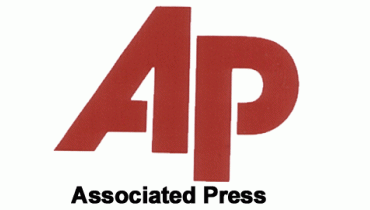Accounting Basics Business Owners Should Learn

Accounting is indispensable for businesses across the board. When running a business, accounting is therefore among the top priorities you should be familiar with.
However, many business owners aren’t well-versed with business accounting. And even if you are familiar with this task, often there are many other areas of your business you focus your time and attention on, leaving you with less time to get your accounting numbers right.
But whether you are handling your own business accounting or you let experts handle it for you, you should take care of your accounting to keep your business running smoothly.
Understand the Basics of Business Accounting
Here are key concepts and tips to help you understand the basics of business accounting and perform this essential part of your business correctly and efficiently. This way you can achieve your business goals and make smart financial decisions for your company.
Let’s begin...
1. Difference Between Cash and Accrual Basis Accounting
Every guide on accounting will introduce you to the two basic types of accounting: cash basis and accrual accounting. Cash basis is a simple accounting method where income and expenses are recorded in the books when the money hits and leaves your accounts.
Accrual basis accounting, on the other hand, is a more complicated accounting method, but it is also more accurate. This method records income and expenses even when payments aren’t received or paid yet. This type of accounting provides a complete view of your finances in a particular period instead of just showing day-to-day expenses on a cash basis.
2. Various Business Income
Knowing your business’s various incomes will allow you to monitor and put them all in the books. Here are some of the income sources you can include:
- Sales Income: Your primary source of income comes from the products you sell.
- Rental Income: Are there company items and equipment being rented out? The rental fees also go towards your income.
- Royalty Income: Have you allowed another individual or group to get a patent, copyright, or franchise of your products or business? You have the right to royalty income and can also put this on the books.
- Capital Gains: Do you own properties and sell them at a higher price? The amount of the increased price is also part of your income.
- Foreign Investment Funds: There are various ways to spend your income, one of which is investing in foreign funds. Make sure to input the income you receive from this source in your books.
- Bank Account Interest: Don’t forget to include bank account interest in your income. No matter how small or large, the numbers count.
3. Different Business Expenses
Aside from income, you should also know your business expense sources so that they reflect in your books. When you have your books checked regularly, you can trim your budget for certain expenses right away to stop overspending.
- Direct and Indirect Costs: Direct costs are the funds directly spent producing or manufacturing a product. Indirect costs are expenses for business operations, but not ones that directly affect product manufacturing.
- Fixed and Variable Costs: As the name of the costs suggest, fixed costs are operational expenses that are stable and won’t change. Meanwhile, variable costs can change when one dependent variable’s expense increases or decreases.
- Operating Costs: Any expenses related to ensuring your business operations (and not only product creation) are operating costs.
- Controllable and Noncontrollable Costs: Know your business's controllable and noncontrollable costs. This way, you can create game plans to lower the controllable expenses in case there are expensive noncontrollable costs.
4. Benefits of Early Accounting
Knowing the benefits of early accounting will encourage you to continue what you began if your accounting is already in place.
If you haven’t started your business accounting yet, these perks will motivate you to begin as soon as possible:
I. Relax During Tax Time
Tax season puts a lot of pressure on you as you’ll need to gather complete business financial information for the previous months of the year. Backtracking is not an easy task, but if you begin your accounting early, there is no need to worry about this, and your accountant and bookkeeper will have ample time to prepare the books and double-check them before tax time.
It would also help remember and mark tax deadlines on your calendars to avoid missed and late payments. There will be repercussions if you fail to pay or pay the wrong amount.
II. Up-to-Date View of Financial Health
You can also fully view your business's financial health with accounting through timely and up-to-date reports. Accountants can also give suggestions and insights for decision-making.
III. No Lost and Corrupted Documents
Lost documents often occur when they stay on filing cabinets or kept disorganized on computers for a long time. When you do not organize them in books right away, chances are, they may be misplaced, lost, or corrupted.
The good news is there are software and apps you can invest in to keep important documents in your business safe and free from corruption or being lost.
5. Accounting Software
Many accounting problems go away just because you have the right accounting software. Investing in accounting software is important because it helps you organize and manage your company's financial records accurately and efficiently, while also enabling you to automate and streamline processes, including streamlining tax filing.
Modern accounting software keep your financial data safe and protected in the cloud. And the decision is also yours on who can access and collaborate in financial data management.
Some top bookkeeping and accounting software you can try:
- QuickBooks
- Xero
- FreshBooks
- Sage50 Cloud
The best accounting software can integrate optical character recognition (OCR) technology, which extracts text from an image and converts it into digital form. OCR is transforming accounting by taking on time-consuming tasks and reducing data entry for accountants.
With OCR, you can convert receipts, invoices, purchase orders, and other handwritten and printed documents into editable and searchable data to be saved safely in digital form and included and categorized in your books. A2X, Hubdoc, and Dext are examples of popular accounting software that may integrate with OCR.
And, of course, to make tax management easier, you can also invest in software like Avalara, HelloTax, Taxify, Taxjar, and Taxomate. These software are always updated with the latest tax rates especially with the ever changing regulations on sales taxes.
In Conclusion
When running your business, getting your accounting basics right is vital as it will help you make sound financial decisions and attain financial goals and freedom.
We've outlined the basic concepts every business owner should learn when it comes to accounting—from understanding the difference between cash and accrual basis accounting, to knowing what counts as income and expenses for a business. Learn the basics; do accounting right!
Once you grasp the basics, don't hesitate to reach out for help with your bookkeeping or taxes. With a little knowledge and support, you can do accounting right and keep your business on track financially.






















